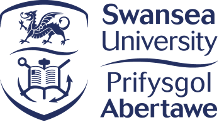
- This event has passed.
Training Workshop on Sustainable Engineering Tools for Environmental Sustainability Assessment
6 February 2023 @ 8:00 am - 7 February 2023 @ 5:00 pm
6th and 7th of February 2023
Venue: Scarman Warwick Conference Centre.
Cost: Free. Sponsored by the Society for the Advancement for Management Studies (SAMS) and the WMG High Value Manufacturing Catapult (HVMC).
The material and energy flows created by humans, emanating from production and consumption processes, have huge impact on the Earth system including depletion of natural resources, environmental pollution, and degradation as well as environmental noise and disturbance. Addressing these layered and complex challenges, without destabilizing industrial and business processes whilst operating within the safe operating zone of the planetary boundaries has therefore become a matter of global concern and urgency. The associated complexities of these challenges have led to the need for businesses of all types, sizes, and sectors to measure, quantify and assess the environmental impacts across their entire value chains to inform strategic decision making. Despite the potential benefits, the requisite skills and knowledge required by stakeholders regarding the application of relevant sustainable engineering tools for the measurement, quantification, and assessment environmental sustainability is significantly constrained.
Sponsored by the Society for the Advancement for Management Studies (SAMS) and the Central High Value Manufacturing Catapult (HVMC), this intensive 2-day training workshop is designed and led by Environmental Sustainability Research Experts from WMG and Specialists from Industry to bridge the skills gap. The workshop will equip participants from diverse disciplinary backgrounds with critical knowledge and skills to conduct environmental sustainability assessment using a range of sustainable engineering tools. During the training workshop, participants would be introduced to different aspects of environmental sustainability thinking including:
- Introduction and overview a range of sustainable engineering tools and techniques such as environmental impact assessment, life cycle analysis (LCA), input-output (IO) analysis, material flow analysis (MFA), etc.
- Hands-on modelling using two specific methodological approaches to LCA modelling namely process-based LCA and Environmentally Extended Input Output (EEIO) analysis, and potentially Hybrid LCA. This will cover analysis of Scopes 1, 2 and 3 emissions.
- Practical applications of material flow analysis (MFA).
- Theoretical, methodological and application issues and challenges of Environmental Sustainability Assessments, thus enabling participants to establish a research agenda.
Provisional Training schedule
DAY 1: Theoretical underpinnings of sustainability frameworks, and methods
08:30-09:30 Registration of participants.
09:30-10:00 Welcome address and introductions.
10:00-10:45 Keynote Lecture: Environmental sustainability assessment in the context of sustainable manufacturing and circular economy.
10:45-11:00 Tea and coffee break.
11:00-12:00 Introduction and overview of sustainable engineering tools and techniques.
12:00-13:00 Self Service Lunch at Lakeview restaurant, Scarman.
13:00-14:00 Introduction to process-based LCA.
14:00-14:45 Case study applications of process-based LCA.
14:45-15:15 Tea and coffee break.
15:15-16:15 Introduction to environmentally extended input output (EEIO) analysis.
16:15-17:00 Introduction to material flow analysis (MFA).
17:00 End of Day 1
DAY 2: Hands-on applications of specific sustainable engineering tools
09:00-10:00 Plenary discussion environmental sustainability assessment and the circular economy
10:00-10:30 Tea and coffee break.
10:30-12:00 Hands-on process-based LCA modelling exercises
12:00-13:00 Self Service Lunch at Lakeview restaurant, Scarman.
13:00-15:00 Hands-on EEIO LCA and MFA modelling exercises
15:00-15:20 Tea and coffee break.
15:20-16:20 Individual and self-directed modelling tasks and revision continues
16:20-17:00 Multiple-choice open book assessment and collection of certificates of participation. An above average score (>50%) must be attained to get the certificate.
17:00 End of workshop





